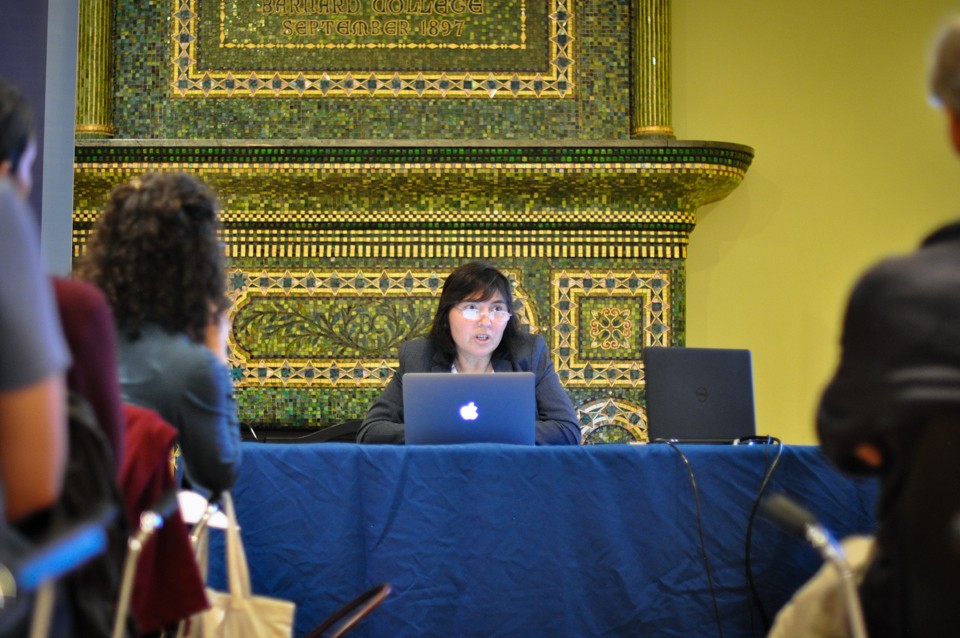Chilean Journalist Alejandra Matus Breaks Down History of Fake News, Calls for More Versatile Journalism
By Harris Walker for Columbia Spectator| October 9, 2018, 4:01 PM
Alejandra Matus, an investigative journalist from Chile and the Weiss Fellow for Visiting International Scholars at Barnard, delivered a speech Monday on the evolution of fake news and the responsibility of journalists in the digital age.
Matus spoke to nearly 40 members of the Columbia community about the origins of fake news during the Spanish-American War, the erosion of trust in traditional journalistic institutions over the years, and the ways in which journalists can regain that trust in the modern era.
Matus explained that journalists and governments have been manipulating facts for years to their own advantage. She referenced the U.S. government’s involvement with Chilean newspapers in the coup to topple Salvador Allende’s democratically elected government of the early 1970s, and the yellow journalism of Joseph Pulitzer during the Spanish-American War, where Pulitzer fabricated information to increase American animosity toward the Spanish government, as examples of journalism being used for nefarious purposes.
“Taint appears as a symptom when the exercise of journalism crushes certain corners and truth is resisted by social beliefs,” Matus said.
Following her historical narrative of fake news, Matus turned the focus of her speech to the importance of objective journalism. Having dealt personally with a restrictive government in her home country, Matus is a firm believer that high-quality journalism keeps regimes in check, and vice versa.
In 1999, Matus published “The Black Book of Chilean Justice,” which uncovered a system of corruption in Chile dating back to the dictatorship of Augusto Pinochet. Despite the fact that this book was published nine years after Pinochet fell from power, Matus’ book was prevented from being published, and she was threatened with arrest. Following the outcry that ensued from her case, the law under which she was persecuted was repealed in 2001.
Matus acknowledged, however, that despite the power of journalism to affect change at the highest levels of government, the consumption of media—especially print media—is declining for reasons beyond the rise of fake news. Matus attributed this waning interest to a general trend of mistrust in the Internet age.
“The digital revolution is eroding trust in big institutions,” she said. “The media is a big institution.”
Going forward, Matus believes that journalists need to adjust their practices in order to reconnect with the general public. Matus stressed the importance of restructuring journalism to make it more accessible to a populace that is spending less time reading than ever .
“The essence of journalism is to understand society and to try to reach the people of society,” Matus said. “If you are only writing for the people at the top, and the only people that can understand you are at the top, you are not providing too much of a service.”
